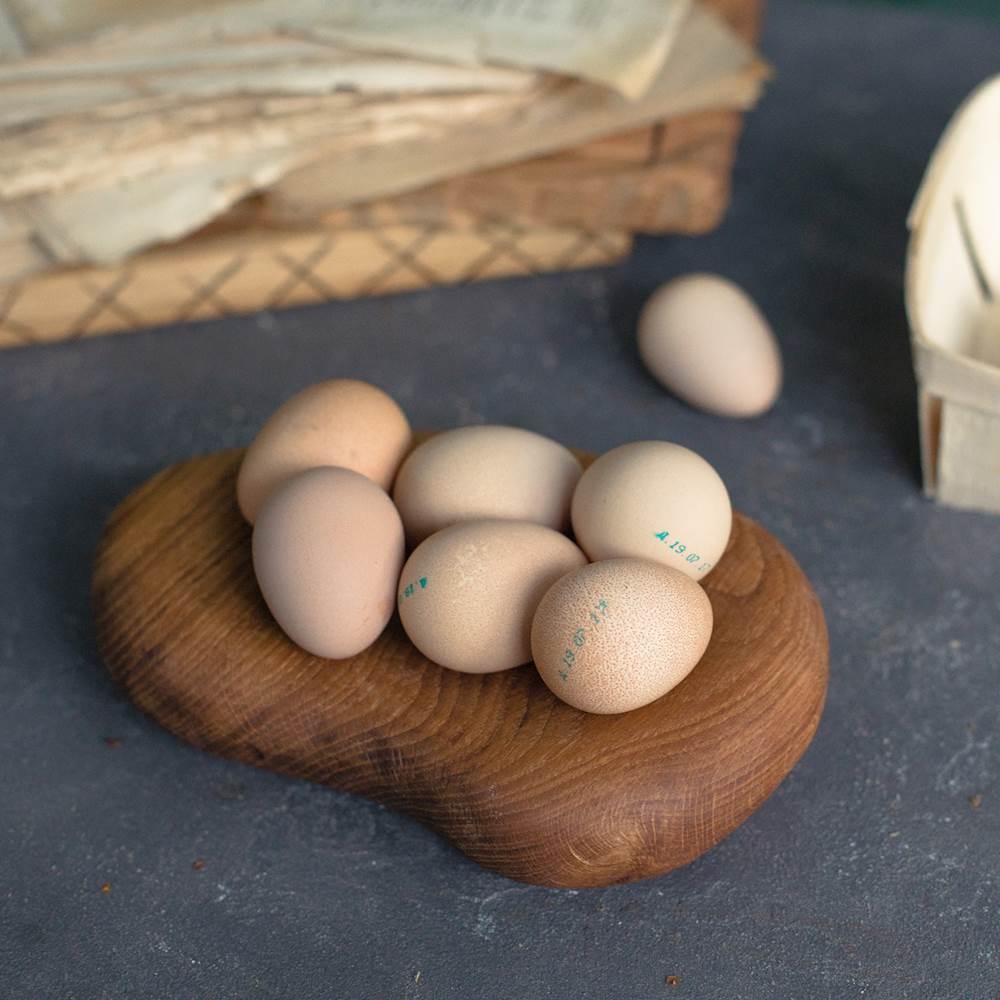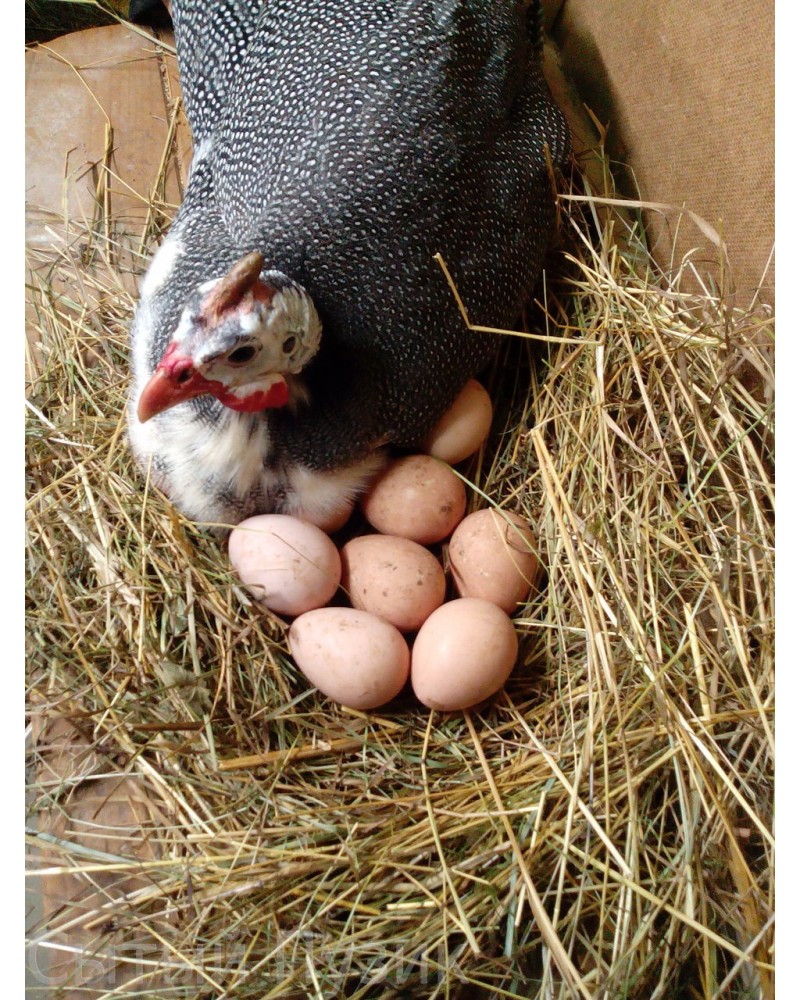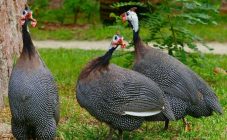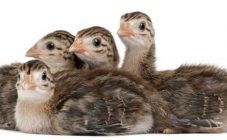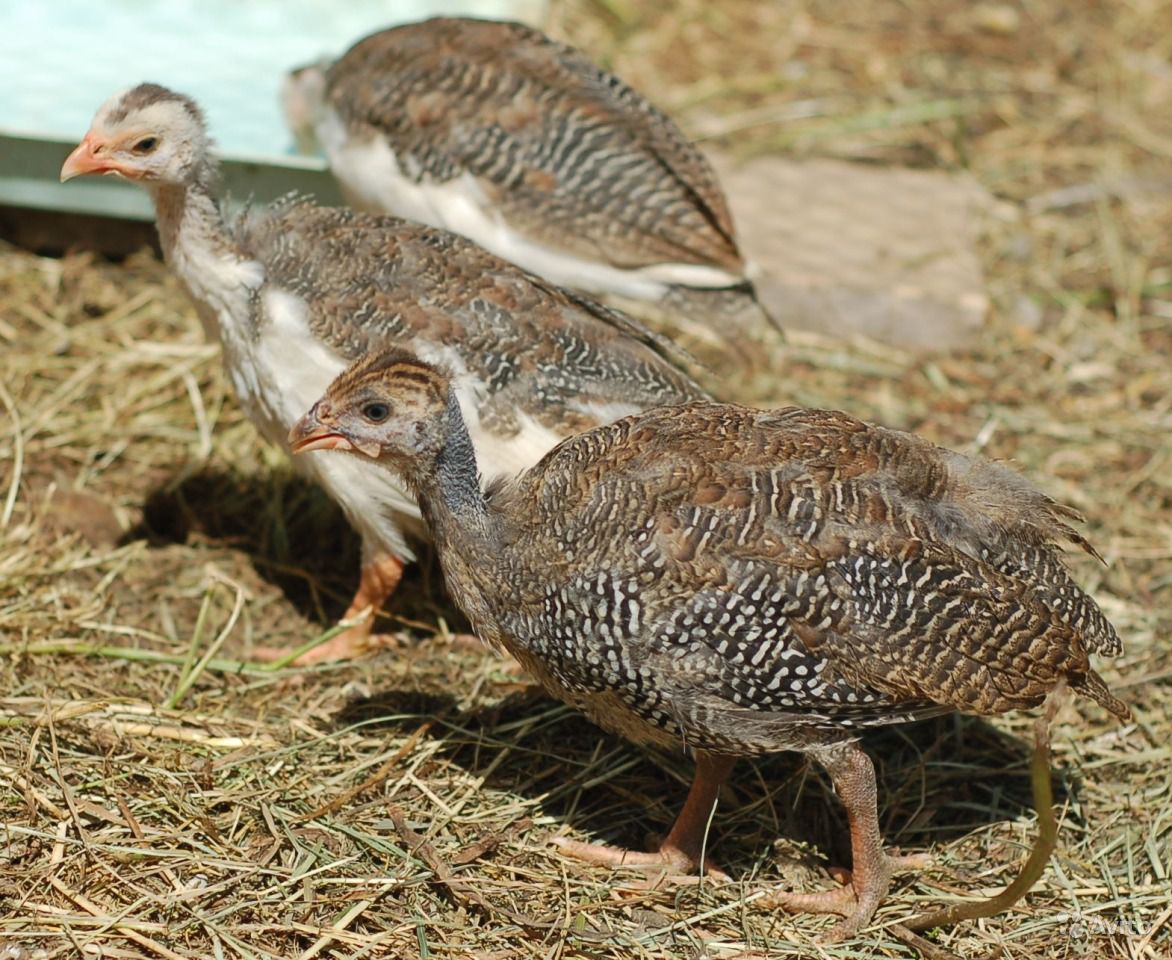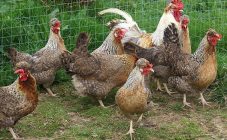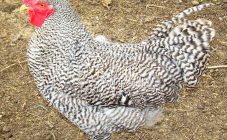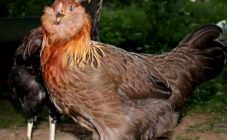Content:
Guinea fowls are the only traditional poultry with their origins in Africa. The domesticated version is somewhat different from the wild ancestor. In Europe, it has been known since ancient times, and it came to Russia not so long ago. Guinea fowls have been kept for the purpose of obtaining eggs and meat only since the 19th century. At first, the exotic appearance of the birds contributed to their breeding to decorate the palace gardens.
Characteristics and features of guinea fowl eggs
If you compare the eggs of guinea fowl and chicken, you can note a number of differences in characteristics and appearance:
- Guinea fowl eggs are slightly smaller than chicken eggs. They also differ in shape: one side is rounded, and the other is more elongated.
- The shell is matte, brown-yellow, in different shades, rough to the touch, there are specks of a darker color on the surface. It is much stronger than a chicken egg.
- The color of the yolk is from pale yellow to dark orange. In percentage terms, there is more yolk than in a chicken egg.
- Despite the fact that a guinea fowl egg looks smaller than a chicken egg, its weight is from 40 to 50 grams (without shells - about 25 grams), which corresponds to the weight of an average chicken egg;
- The difference between egg white and chicken egg white is that the latter has bactericidal properties and contains less water (higher viscosity).
However, long-term storage can impair the structure of the product. As farmers noticed, the protein gradually dries up and only the yolk remains.
Guinea fowl eggs are sold in some supermarkets, but the cost of one dozen is 2.5-3 times higher than chicken eggs. This is due to the peculiarities of bird egg production. From one individual, you can get a maximum of 120 pieces per year. (as opposed to chicken, which yields 300). From early autumn to spring, guinea fowls do not rush. And not all eggs are for sale. They are partially used in the incubator to hatch new individuals. The long shelf life allows farmers to sell their goods without haste.
Shells and their uses
The shell of guinea-fowl eggs is characterized by high strength and low porosity. Thanks to this, the freshness of the eggs is maintained for a long time. Dangerous microorganisms practically do not penetrate under the eggshell. Resistance to mechanical stress makes the product easy to transport. On the other hand, the tight shell affects the cooking time of the eggs. They need to be boiled longer than chicken (about 10 minutes).
Eggshells are themselves a valuable product that can be used in a variety of ways. It contains almost 90% of calcium in organic form, which provides significant advantages for its absorption by living organisms, including plants. In addition to calcium, magnesium, iron, phosphorus, molybdenum, sulfur, and aluminum are present in small amounts in the shell. All this can serve as an excellent fertilizer for growing plants.
The use of eggshells in the garden
Why is egg shell useful for soil:
- Reduces acidity levels. Soil fertility is determined by the pH level.At pH below 5.5, the substances necessary for plant nutrition are poorly soluble, which makes it difficult for them to be absorbed by the roots;
- Enriches the soil with useful minerals;
- Loosens the soil. This is especially true for soil with a high clay content, where air penetration to the roots is difficult, and poor water filtration, which can stagnate. When dry, such soil cracks and can damage the root system;
- Promotes protection against diseases: black leg, apical rot;
- Scares off harmful insects and rodents.
Ways of using shell powder:
- Scatter over the ground and process with a rake. Adding powder to the planting holes for onions and potatoes brings significant benefits;
- Just sprinkle on the surface of the soil, which will reduce the activity of weed growth, scare off cruciferous fleas and cabbage;
- For a fruit tree, powder is applied with a light embedding in the ground around the trunk.
The shell infusions help to use useful elements (for example, keratin), which are also contained in the film lining the hard shell from the inside.
Usage method:
- Place eggshells in a container with water at the rate of: per liter volume of about 10 pieces;
- Insist for about two weeks until the liquid becomes cloudy;
- Then apply for watering. It is permissible to dilute the infusion in a 10-fold ratio with ordinary water. In this way, you can water not only garden plants, but also indoor plants.
Proper use of egg shells:
- Certain types of garden and garden flora prefer soil with higher pH values. For example, asters or violets. It is better not to feed them with such fertilizers;
- For tomato, eggplant and pepper, watering with an infusion from the shells is preferable, rather than treating the soil with powder.
Crushed powder can be added to the soil for:
- fruit trees;
- melons and gourds;
- berry bushes;
- parsley, dill, celery, lettuce;
- radishes;
- Luke;
- legumes.
Crushed eggshells are used on the farm and as a calcium supplement in animal feed, including cattle and poultry. In this case, they must be crushed especially carefully.
Human use
The use of powder from the shell of guinea-fowls will bring no less benefit to a person. It is recommended for a growing body, as well as for older people with a lack of calcium in the body. At the same time, both the condition of the bones and the hair and skin improves.
Mode of application:
- The shell separated from the previously cooked hard-boiled egg is boiled twice more with water change;
- After drying, they are crushed in a coffee grinder - this is how the finest powder is obtained;
- Take 1 tsp. daily with water.
Useful and harmful properties of guinea fowl eggs
The difference between chicken and guinea fowl eggs is also in the content of vitamins and nutrients.
Guinea fowl eggs:
- The calorie content is about 4 times lower, which counts them as dietary products;
- Fat content - 0.5 / 100 g (in chicken - 10.9 / 100 g);
- The amount of protein - 12.8 / 100 g, carbohydrates - 0.7 / 100 g, which is close in value to chicken;
- Carotene (vitamin A) - 4 times higher;
- There are also vitamins D, E, PP, C, iron, potassium, asparagine and other substances.
Recommended to eat:
- Suffering from diseases of the heart and blood vessels due to the lack of "bad" cholesterol;
- With iron deficiency anemia and vitamin deficiency;
- After recent operations, stress;
- Children, especially those who are allergic to chicken eggs.Caesar's product very rarely causes rejection of the body;
- For diseases of the organs of vision due to the high content of vitamin A;
- Persons with metabolic disorders and related skin problems (acne);
- Women during gestation and lactation;
- With diseases of the gastrointestinal tract, since the digestion of these eggs does not provoke disturbances in the work of the digestive system.
Sometimes it is necessary to take into account the harm from using guinea fowl eggs for food:
- Individual allergic reactions;
- Liver pathologies and renal diseases. Rational use is possible. You can't just abuse this product;
- After the vaccination, it is better for children to refrain from eating guinea fowl eggs, as sometimes the body gives unforeseen reactions.
More and more farmers prefer guinea fowl breeding because of the exceptional value of the products obtained. If you compare the eggs of these birds with chicken eggs, their advantages are obvious. Even despite the higher prices, they will definitely find their buyer.

